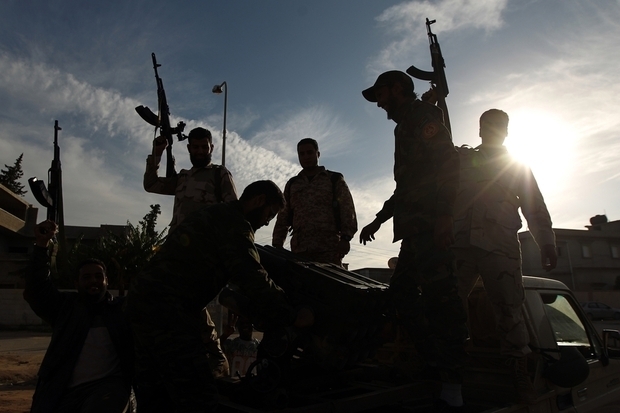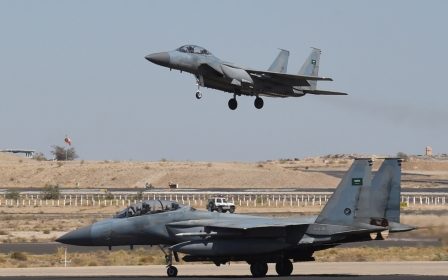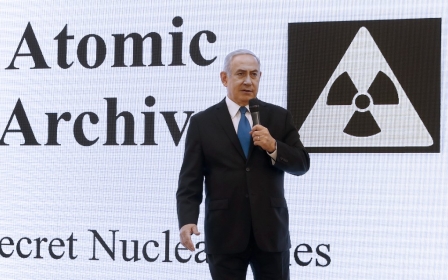Middle East arms imports increase by 25 percent while global numbers drop

Countries in the Middle East increased arms imports during the past five years by 25 percent, a leading arms watchdog said in a report published on Monday.
The Stockholm International Peace Research Institute (SIPRI) found that unlike global arms sales, which levelled-off during the 2016-20 period, the Middle East saw a dramatic increase in arms transfers when compared to the previous five years.
SIPRI said the increase reflected "regional strategic competition among several states in the Gulf region".
Saudi Arabia, which has been leading a military coalition in Yemen since the start of the documented period and has become increasingly concerned with regional rival Iran, saw a 61 percent increase in arms imports.
New MEE newsletter: Jerusalem Dispatch
Sign up to get the latest insights and analysis on Israel-Palestine, alongside Turkey Unpacked and other MEE newsletters
While Saudi Arabia, between 2018 and 2019, fell from being the world's third largest military spender to the fifth, it remains the world’s largest arms importer.
The group noted that Egypt, with a 136 percent increase in arms purchases, is involved in disputes with Turkey over hydrocarbon resources in the eastern Mediterranean and has "invested heavily in its naval forces".
The largest increase in arms imports in the Middle East during the 2016-20 period was Qatar, which saw a 361 percent uptick. Saudi Arabia, the UAE, Egypt and Bahrain just ended a three-and-a-half-year blockade on Qatar in January, restoring full diplomatic, trade and travel ties.
Algeria also increased its arms imports by 64 percent, compared with 2011–15.
US-Middle East arms sales
Meanwhile, several main arms buyers in the Middle East that saw decreases in arms imports were likely due to deals with the US that were stalled or suspended, SIPRI said.
For instance, the UAE - one of Saudi Arabia's key regional allies - had decreased arms imports by 37 percent in 2020. At the same time, several planned deliveries of major arms to the UAE - including 50 F-35 warplanes ordered from the US - have been suspended, suggesting that Abu Dhabi "will continue to import large volumes of arms", SIPRI said.
Turkey's arms imports also fell by 59 percent between 2011–15 and 2016–20, which the report said was largely due to the US's decision to cancel F-35 deliveries to Ankara after it refused to cancel its order of Russian S-400 air defence systems.
Turkey is also increasing its domestic production of major arms in order to reduce its reliance on imports, the group noted.
The 2016-20 period was the first time in 15 years that SIPRI had not marked an increase in total global weapons transfers, but international arms transfers remain close to the highest level since the end of the cold war, the group said.
SIPRI found that the United States, Russia, France, Germany and China were the five largest weapons suppliers during the documented period, accounting for 76 percent of the total volume of global arms exports.
While substantial increases in weapons transfers from the US, France and Germany were reported, those increases were "largely offset" by declining numbers out of Russia and China, according to SIPRI.
The United States and China together continue to account for over half of the world’s military spending.
Israeli arms exports dropped by 41 percent in 2016–20, compared to the previous five-year period.
Middle East Eye delivers independent and unrivalled coverage and analysis of the Middle East, North Africa and beyond. To learn more about republishing this content and the associated fees, please fill out this form. More about MEE can be found here.




